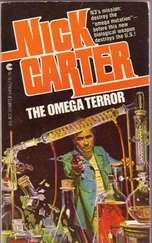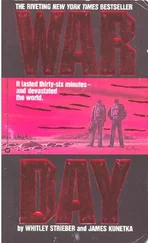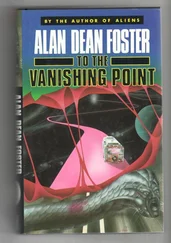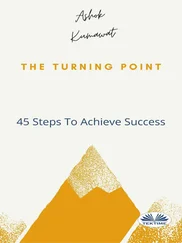“To you in five, four, three, two, one.”
“And the big story tonight is that lake-effect snow, folks, you got that right, we’re gonna get a heavy dose tonight.” And so it went, down to the bottom of the hour, and they were out. When he walked off the darkened set, Gin was already gone. Far, no doubt. But where else were they gonna get somebody who could run a board for her money?
Later that night, he was hanging on a bar sucking beer and wishing some kind of dealer, any kind, would show up. Then a citizen came in, saw him, and said, “Hey, Marty. No snow!”
That was Marty Breslin. Batting a thousand.
6:36 PM, DECEMBER 22, 2012
JET PROPULSION LABORATORY
Dr. Deborah Wilson pointed to a faintly blinking readout from the Advanced Composition Explorer. “What’s that spike, Sam?”
Her graduate assistant thought perhaps this was some sort of quiz. He tapped the screen, and the ACE II detailed readout appeared. What he saw confused him. It was ordinary for the ion flux from the sun to vary, sometimes by a lot, but not by this much, never. “Let me run the circuits.” What this would do was to determine whether or not there were overloads anywhere on the satellite, or tripped circuit breakers. From there, they could pinpoint the source of the anomaly.
“I’ve done that,” Dr. Wilson said. She was clipped, careful, and very uncompromising. But she had also just told him that this tremendous spike in ions was some sort of real phenomenon, not an artifact.
He pulled up the Solar and Heliospheric readouts. The solar wind speed was 431.5 km per second, the proton density was thirteen. There was a coronal hole at midlatitude, and two small sunspots on the near side. “So this isn’t coming from the sun,” he said.
“Apparently not.”
Energy from deep space, then. It had first been detected in the late nineties of the last century by Russian astrophysicists, but it wasn’t considered a significant factor by their American counterparts.
As he spoke, his voice rose an octave, which he just hated. “But this can’t be.” He cleared his throat.
“Except that it is.”
And there it was, entering the solar system right now, the sudden increase in intensity unmistakable. And his instructor was waiting. “I think it’s a wave of energy from some sort of extrasolar event, perhaps an archaic supernova.”
“Why archaic?”
“Well, obviously, there’s a lot here compared to the normal range of solar output, but I’d think that a close supernova—that would be, um, even more energetic.”
“Unless we’ve been in the distant corona since 1997, and this is the leading edge of the real stuff.”
There was something in her voice that he didn’t like. He looked up, met her eyes. “You’re scared.”
“Supernovas happen.”
“But—my God.” If this was the leading edge of a supernova wave, it could end life on earth. “This isn’t possible!”
She reached across his cluttered desk and did something that she had never done before, and, in fact, was probably not appropriate conduct. She touched his hand. She started to speak, then stopped, and her silence said everything.
It was possible. It was quite possible.
However, when their findings eventually became a press release, it didn’t exactly cause people to go rushing into churches begging God for deliverance. In fact, the story appeared in The New Scientist as a single paragraph. It showed up on Space.com for a couple of days. Various scientific blogs commented on it, more or less in passing.
Still, though, the energy level in the solar system quietly began to increase, and it kept increasing. Nobody noticed that the ion flux had begun to rise at exactly one nanosecond after midnight on December 21.
Nobody would ever notice that, but the story of what was happening to our solar system would grow and grow, until it became the most important of all stories, the greatest story, and, in a sense, the last story.
MAY 2020
David Ford had never flown in a private jet before, but it seemed almost inevitable that the superexclusive Acton Clinic would transport its new chief psychiatrist this way. The thing was small and louder than an airliner, but it was also swift and plush, if a bit worn. The sweep of leather was cracked here and there, and the carpet was tight from many steps.
Mrs. Aubrey Denman sat opposite him. She was the board’s representative, all angles and desperation, narrow arms, a neck like knotted rope, her face an archaeology of lifts, so many that she appeared to have been transformed into a waxwork of herself. Her laughter was all sound and no expression. She must be seventy-five, maybe more.
The jet was claustrophobic. There was absolutely no wasted space. In the galley, a cadaverous servant in a blue blazer stood at the ready, his eyes emptied by a lifetime of waiting.
She was so rich that she had not only a plane, two pilots, and a servant, but also the plane was working.
So here he was in this really amazing situation, thirty-two years old and moving straight from his psychiatric residency to a good job in a time when there were no jobs of any kind.
“Dr. Ford, I want to take this opportunity to give you a little additional information.”
They were in facing seats, knee to knee in the compact cabin. “I would appreciate that very much.”
“First, I must apologize about the plane.”
“It’s wonderful, and I’m so grateful for the ride. It could’ve taken days otherwise.”
“This is a fifty-year-old airplane. The only one I have that works. The newer ones—the electronics are ruined, they tell me.”
The sun, of course. Always the damned sun. He noted the implication that she had a number of planes. Extraordinary.
She seemed to brace herself, like somebody bracing for a crash or waiting for an explosion. But when she spoke, her tone was casual, almost offhand. “You do know that Dr. Ullman was the unfortunate victim of a fire.”
Something had opened the position, that had been clear enough. He had not asked, and nobody had explained. “I’m sorry.”
“He was living in the town. Unfortunately, the fire service in Raleigh County has deteriorated. They were too slow.”
It seemed odd to leave information like this to a moment when he was already on his way to the facility, as if the knowledge might have changed his mind. “It was an accident?”
“We assume.”
“Is there anything else I should know? I mean, why are you telling me now?”
“You understand that your quarters will be on the estate?”
“I’ve been told that I have Herbert Acton’s personal suite.”
“Which is one of the most extraordinary interior spaces in this country. In the world, for that matter.”
“That I was told. I’m fascinated. I tried to find pictures online, but—”
“No pictures. We’re not the Donald Trump sort.” She smiled a little. “Mr. Acton met girls in the bedroom you will use. Of course, you’re a bachelor.” Now her face became as hard as flint. “He wasn’t.”
Could she have once met Herbert Acton there? He’d died in 1958. She’d probably been a girl then, a teenager.
She burst out laughing. “It’s just brilliant, you’re going to love it, young man.”
She reached for her drink—they had both been given highballs by the waiter—and as she lifted it to her lips, a blue glow appeared around her arm. She looked at the glow for a moment, then tossed the drink away with a little cry and an electric crackle. David noticed the same glow along his arms, and felt a tingling sensation. He thought, This thing is about to blow up, and his heart started racing. The waiter rushed to pick up the glass, blue fire shimmering along his arms and back.
Читать дальше











